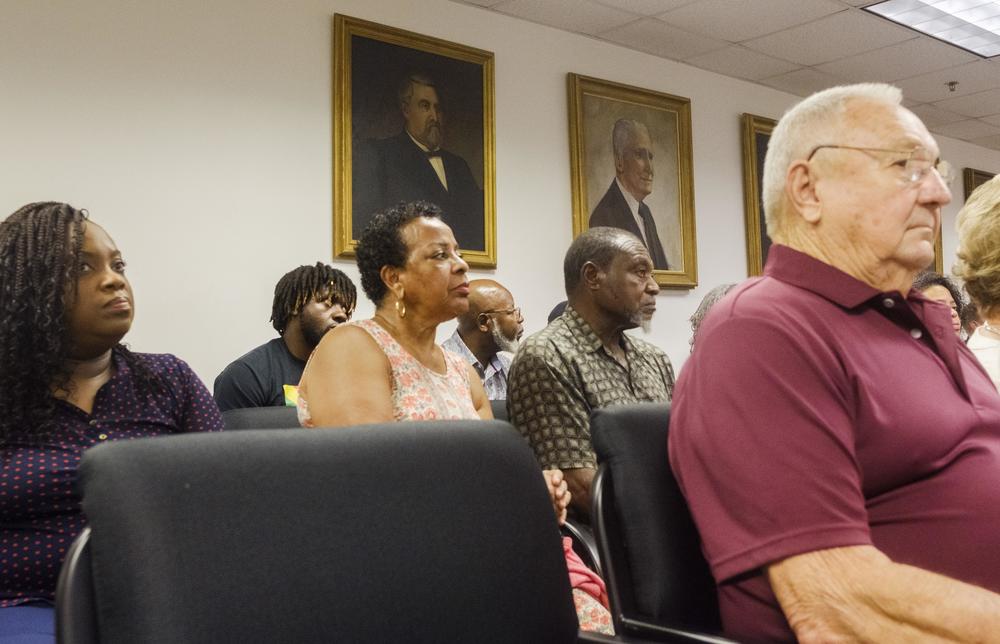
Caption
Sandersville Railroad President Ben Tarbutton, second from right, contends the Hanson Spur, a short rail line connecting a Sparta quarry to rail lines carrying material to the Northeast, would be what Georgia law defines as a “public good” by virtue of the 12 jobs and taxes into county coffers he promises.
Credit: Grant Blankenship/GPB News



